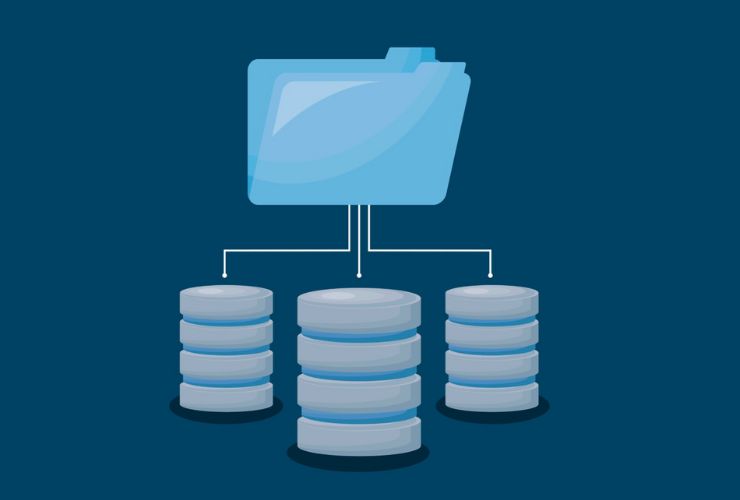In today’s fast-paced digital world, businesses are increasingly embracing cloud migration as a strategic move to improve operations, cut costs, and gain a competitive edge. But what exactly is cloud migration, and why should your business consider it? In this blog, we’ll break down the key reasons why migrating to the cloud is not just a trend—it’s a game-changer for businesses looking to grow and innovate.
What is Cloud Migration?
Cloud migration is the process of moving data, applications, and other business processes from on-site servers or infrastructure to a cloud-based environment. Whether it’s moving everything to the cloud or just a few components, platforms like Amazon Web Services (AWS), Microsoft Azure, and Google Cloud offer flexible, scalable solutions designed to meet your specific needs.
Key Benefits of Cloud Migration
1. Cost Savings
Yet, another critical point for companies switching to the clouds is the astronomical saving that could be derived therefrom for their use. By cloud computing you only pay just what you needed to pay at any time like the “pay-as-you go” model to liquidate pricey physical infrastructures and lessen all the operational charges for electricity or maintenance.
2. Scalability and Flexibility
The cloud can scale up or down according to your needs in the moment. If your business is booming, you can scale up. If your business only thrives at certain times of the year, you can scale back. Cloud platforms give you the flexibility to add or subtract resources on an as-needed basis. So you don’t have to worry about relying on physical servers.
3. Enhanced Security
Any business has data security as the topmost concern, which cloud providers take very seriously. They provide advanced security features such as encryption, firewalls, and strict access control to ensure your data is protected. These companies spend significantly on cybersecurity most of the time giving advanced protection than most in-house IT departments. With regular updating and application of security patches, it makes sure that systems are strongly protected from cyberattacks and data breaches.
4. More Collaboration and Access
Cloud technology allows your team to access the company’s data and tools no matter where an internet connection exists. This has improved greatly the collaboration with remote or distributed teams. Your employees can now access what they need in real-time, from the office to working from home or traveling; this streamlines workflows and boosts productivity.
5. Disaster Recovery and Business Continuity
The most important feature that goes with cloud migration is built-in disaster recovery solutions, so that your business runs even in the event of a technical failure or data loss. Cloud providers have backup and recovery services, minimizing downtime, data protection, and smooth operations, which is quite important in today’s competitive business world.
6. Automatic Software Updates
Software managing and upgrading is very time-consuming and expensive. In cloud migration, you don’t have to do anything as your software will be updated by the cloud service provider to the latest version. Such updates will ensure smooth running of your systems and that you get to utilize the recent features and security enhancements saving you time and money both.
7. Sustainability
First and foremost, it’s friendly to the environment because cloud service providers have sustainable data centers that are environmentally-friendly. Their major consumption of these data centers majorly consumes is on shared resource usage that actually reduces carbon prints. In addition, this would make your company part of those sustainable practices through lesser energy utilization.
Challenges in Cloud Migration
Cloud migration comes with so many benefits, but the business has to be informed about the risks and how it will handle the following:
- Data Security and Compliance: Organizations need to ensure the cloud service provider is adhering to the industrial standards and can assure suitable security of all the sensitive data.
- Downtime and Performance Issues: Proper planning and phased migration would minimize the possible disruption that can occur due to a move.
- Cost Management: Though cloud services eradicate infrastructure-related costs, one has to track its usage not to face an unwarranted increase.
- Skill Gaps: The IT team has to be further trained to work effectively within the cloud-based environments.
Best Practices for a Successful Cloud Migration
The best practices through which a business will have to transit in the cloud are as follows:
Analyzes Existing Infrastructure Determines which applications and workloads should go to the cloud.
Chooses Appropriate Cloud Service Provider Choose one that meets all your requirements: Security, scalability, pricing, compliance.
Plan Migration Strategy Either rehost applications, re-platform or refactor to take advantage of native cloud functionality
Ensure Data Security Encryption of databases and multi-factor authentication practices are in place
Continuous Monitoring and Optimization of Performance: Continuous tracking of cloud performance for optimization of efficiency.
Cloud Migration by Industry
The various industries apply the cloud migration in different ways:
- Healthcare: Secure storage and sharing of patients files that are HIPAA compliant.
- Finance: Real-time analytics and AI-powered fraud engines in the cloud-based.
- Retail: Improving customer experience with eCommerce platforms and cloud-based recommendations.
- Education: Facilitating remote learning and collaboration through cloud-hosted educational tools.
Future of Cloud Computing
Cloud technology is still developing, and it is expected to continue to advance in the future with developments like:
- Hybrid and Multi-Cloud Strategies: Organizations will be increasingly adopting hybrid cloud models for more flexibility and redundancy.
- AI and Machine Learning Integration: AI-driven cloud solutions will improve automation and data analytics capabilities.
- Edge Computing: Data processing closer to the source will reduce latency and improve performance for IoT applications.
Conclusion
It saves costs, and it is much more secure and flexible and sustainable. This is going to make your business agile, more secure, and future-ready, be it a small or big business. Companies can do this if they have proper strategic planning, proper best practices, and overcome some of the challenges, hence further enhancing their capacities in the value chain of cloud computing and thereby improving long-term success and innovation.













 Database Development
Database Development












































